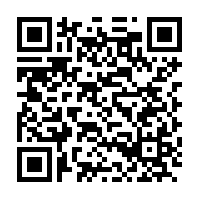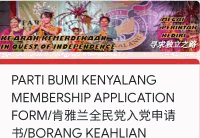
(February 19, 2018) MA63 BREACH By ZAINNAL AJAMAIN
COMMENT: Are the leaders in the Federal and Sabah governments made up of honourable and sincere men? Or are they in the elevated position only for themselves rather than serving the interest and welfare of the rakyat and the nation?
I have publicly disclosed two breaches of the Malaysia Agreement 1963 since the beginning of this year, yet until today none of these leader’s dare make any reply. They are perhaps totally ignorant, or they are purposely deceiving the people to serve their respective interests.
The leaders in the Sabah government must be in cahoots with the leaders in the Federal government for them to allow these deceptions to spread widely and continue for so long. They are not interested in seeking solutions; rather they are a part of the problem.
On 15 August 1962, GS Sundang submitted a statement of terms to Lord Lansdowne, the Chairman of the Inter-Governmental Committee. In his statement of terms, he insisted that Residual Power must be included in the constitutional arrangements and it shall form part of the complete state rights for Sabah, one of the core terms demanded by the United Party Pasok Momogun in the formation of Malaysia.
This was what he said: –
2. But North Borneo must be guaranteed with Residual Powers as an Integral Part of Complete State Rights, with no over-riding and no concurrent powers from the Federal Parliament.
3. The Residual Power includes the following and every other power which may be necessary for the Internal Affairs of North Borneo.” (Emphasis added)
What is Residual Power? The division of powers between the State and the Federal Government is listed in Schedule 9 of the Federal Constitution. It is divided into the Federal List (powers given to the Federal government), the State List (powers given to the State Government) and the Concurrent List (Powers in which either the Federal or the State Government has this power). Therefore, whatever is not listed in the Federal, State and Concurrent list is Residual Power.
In the case of the 11 states in Malaya, most of the state powers were given to the Federal government without any conditions. This is different for Sabah and Sarawak, even when powers were given to the Federal government, it was with conditions (Please refer to Annex A of the Inter-Governmental Committee Report). This means that the powers given to the Federal government still belong to Sabah and Sarawak.
These powers were only held by the Federal government temporarily. This also means that one day these powers will be taken back by Sabah and Sarawak. The Federal government should not assume it holds these powers in perpetuity. This is yet another example that confirms that Malaysia is temporary, it will remain Malaysia until such time Sabah and Sarawak have gone through the process of Self-Determination and can stand on its own.
Residual Power means whatever power not listed in the Federal List, State List and Concurrent List belongs to the State. This means if the Federal government wanted a certain power which is not listed in Schedule 9, the Legislative list it must refer to the State. The power to add this list belongs to the State.
If the Federal government wanted to add power to its list may require getting consent from all the states in Malaysia before the Federal Government can legislate laws to regulate, manage and administer this power.
The Federal government cannot simply legislate any law to make this power as if it belongs to them. This action may be unconstitutional.
The Federal government may legislate on behalf of the 11 states in the Federation of Malaya, but it cannot do the same thing for Sabah and Sarawak; this is because of the implied conditions provided by the Inter-Government Committee report.
The IGC report is also an agreement that was signed by the United Kingdom, the Federation of Malaya, North Borneo (Sabah) and Sarawak. Singapore however, was excluded from this agreement. This also means that the IGC report must be read together with the Malaysia Agreement 1963.
Therefore, there are clear divisions of power with the incorporation of the Inter-Governmental Committee Report and subsequently the Malaysia Agreement 1963, unlike the Federal Constitution when it was initially established by the Reid Commission in 1957. The whole idea of the Reid Commission was to establish a “unitary states” called the Federation of Malaya.
It was for this reason that most of the power were given to the Federal government. However, with the formation of Malaysia, the idea of the IGC and the Malaysia Agreement 1963 was to establish a “Federation of States”, a nation build on equal partnership.
In this context, the Federal Government cannot treat Sabah and Sarawak like the 11 states in the Federation of Malaya. This oversight may have dire consequence to Malaysia as a whole.
Article 77 of the Federal Constitution gave legality and legitimacy to the states to hold Residual Power where it says:
RESIDUAL POWER OF LEGISLATION
77. The Legislature of a State shall have power to make laws with respect to any matter not enumerated in any of the Lists set out in the Ninth Schedule, not being a matter in respect of which Parliament has the power to make laws.
What this means is that whatever power not listed in the Legislative List, the power lies with the State to make laws for such an item. The Federal Government cannot assume that it has the power to do as it pleased. In this context, parliament does not have any power given by the constitution to override Article 77. This restriction is also given in Article 95D which stated that Sabah and Sarawak are not included for purpose of uniformity of law.
This brings us to Breach No.3 of the Malaysia Agreement 1963, item 25A – Tourism which was inserted by Act 805 effective from 24 June 1994.
This item did not appear in the Federal list before the 24 June 1994. This means to add item 25A – Tourism requires the Federal Government to get the consent if not all the states in the Federation of Malaya it should get the consent of at least Sabah and Sarawak.
Examining the Dewan Rakyat Hansard from January 1994 to December 1994, the only reference to Tourism was made by YB Tuaran at that time, on 10 May 1994 who asked the Federal Government to take over Tourism and put such item into the Federal List:
“Tuan Yang di-Pertua, pelancongan ataupun tourism, dengan izin, adalah satu perkhidmatan yang perlu sekali dan adalah sesuai bagi Kerajaan untuk memasukkan perkara ini di dalam Perlembagaan Persekutuan kerana ini belum termasuk dalam Federal List. Jadi, saya bersetuju dengan cadangan ini.
Mengenai dengan tourism, saya meminta supaya pihak-pihak yang berkuasa di peringkat Kerajaan Pusat sekurang-kurangnya memberi tumpuan serba sedikit kepada negeri Sabah agar pelancong-pelancong dari luar negara ini yang biasanya melawat pusat-pusat pelancongan ………..”
Extract Parliamentary Hansard on 10 May 1994 page 2620
This is a prime example of our typical Sabahan who was at that time a Sabah Democratic Party (PDS) member and PDS was just being given the Barisan Nasional membership and too eager to curry favor to their political masters in the Federation of Malaya.
Perhaps it was from this suggestion that item 25A was inserted into the Federal list on 24 June 1994. This insertion was made without any consultation or consent from the Sabah Government. This action contravenes Article 77 and Article 95D of the Constitution.
In addition, YB Tuaran did not represent the Sabah Dewan Undangan Negeri, therefore, he can suggest, but still, the Federal Government need to get the necessary consent from Sabah and Sarawak first before presenting the Bill for amending the constitution in parliament.
Most likely this suggestion made the Federal Government realise their mistake about the Ministry of Tourism. This is because the Ministry of Tourism was established in 1987 an upgrade from the Department of Tourism. No one at that time remind the Federal Government that it did not have the power to establish the Ministry of Tourism.
Then in 1991, there was perhaps the need to regulate Tourism which by now was becoming an industry, the Tourism Industry Act 1991 was passed by parliament. It was perhaps only in May 1994 that the Federal government realised its big mistake when the YB Tuaran highlighted this matter in parliament.
But instead of following the proper procedure of firstly getting consent then making the amendment, on 24 June 1994, the Federal Government went ahead and insert item 25A – Tourism into the Federal List in Schedule 9 of the Constitution.
This action created several problems:
Firstly, the Ministry of Tourism existed since 1987, the Act (Tourism Industry Act) that governs its activities was only created in 1991 and the powers for the Federal government to have power over Tourism was only established in June 1994. This is not only a problem of putting the cart after the horse, it appears as if the horse is carrying the cart.
The whole Constitution was put upside down because of this mistake. Therefore, the Federal government had not only created an illegal Ministry, it created an illegal Act that has overridden the power of every state in Malaysia by taking over Article 77 which gives Residual power to all state governments.
In addition, the Federal government cannot simply enact laws for the sake of uniformity. Specifically, for Sabah and Sarawak, they are protected under Article 95D and this protection is given by the Malaysia Agreement 1963 as one of the conditions for the formation of Malaysia. Breaching this provision is breaching the Malaysia Agreement 1963.
Secondly, how is it possible for the Federal government to continue with this charade after so long? Are the Federal Government prepared to declare that the Malaysia Ministry of Tourism Industries as illegal and stop all the Ministry activities in Malaysia and outside Malaysia with immediate effect?
Would the Ministry start a transition of handing over these activities to the respective states? Or perhaps the Federal Government prefer a change of government at Putrajaya before any of these changes could take place.
Thirdly, what are the implications from these mistakes after all these years? The Ministry is regulating the industry, they could issue license at the same time collect fees and impose penalties. As the result, what will happen to all the license issued, fees collected, and penalties imposed. Who is going to take responsibility for these mistakes, all these years?
The President of Malaysia Association of Tours and Travel Agents (MATTA) has the audacity to claim that Buddy Services is illegal and that it may bring the local tourism industry to disrepute. What type of reputation does Malaysia have when having an invalid regulation, illegal Ministry, illegal collection of fees and imposing an illegal penalty?
How else can the people get any explanations on the breaches of the Malaysia Agreement 1963?
Leaving things to the government of Sabah, Sarawak and Putrajaya to find an amicable solution does not seems to have any tangible effect. Now the people have shown at least 3 breaches of the Malaysia Agreement 1963, yet the government do not seem to care about these breaches.
The government has no empathy towards the sentiment of the people, the rights of the people and the future of the people. If this were the case by what right do these leaders govern the people?
Therefore, Najib where is your promise of “returning” to Sabah and Sarawak whatever was taken “knowingly or unknowingly”?
Is this not clear enough for you.
In Breach No.4 we shall discuss the legality of Goods and Service Tax specifically to Sabah and Sarawak.
Source:
• Zainnal Ajamain a well know activist in Sabah and Sarawak on the rights of Sabah and Sarawak in the Malaysia Agreement 1963 as well as author of several books
Source: : BorneoToday









